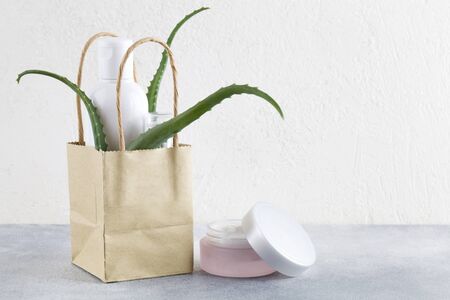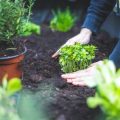Introduction to Sustainable Cleaning in the UK
As more British households embrace greener living, the shift towards natural cleaning alternatives has become a cornerstone of modern, sustainable homes. Choosing DIY natural cleaners not only supports the health and wellbeing of your family but also honours long-standing traditions of mindful resource use and care for the environment. In the UK, where both environmental awareness and appreciation for classic homekeeping run deep, making your own cleaning solutions can be an empowering step toward reducing chemical exposure and household waste. This guide explores how adopting sustainable cleaning practices aligns with British values—protecting our beautiful countryside, supporting local ingredients, and fostering a sense of stewardship for future generations. By focusing on eco-friendly packaging and proper storage methods, you can ensure that your homemade cleaners remain effective, safe, and in harmony with both your home and the planet.
Choosing the Right Containers: Local and Eco-Friendly Options
When it comes to packaging and storing your DIY natural cleaners, selecting the right containers is essential for both practicality and sustainability. In the UK, there is a growing emphasis on eco-friendly living, making reusable, recyclable, and locally sourced packaging solutions highly accessible. By choosing appropriate containers, you not only help preserve the efficacy of your homemade products but also support a greener household.
Popular Container Choices in the UK
Many UK households already have a variety of reusable containers suitable for storing natural cleaning solutions. Glass jars, amber or clear glass bottles, stainless steel tins, and sturdy plastic containers are commonly found at local shops or can be repurposed from existing kitchen supplies. Opting for containers made from recycled materials or those produced by local manufacturers further reduces your carbon footprint.
Container Comparison Table
| Container Type | Best For | Sustainability Benefits | Where to Source Locally |
|---|---|---|---|
| Glass Jars (with lids) | Pastes, powders, scrubs | Reusable, recyclable, non-reactive | Supermarkets, charity shops, zero-waste stores |
| Glass Bottles (amber/clear) | Sprays, liquid cleaners | Protects from light (amber), long-lasting, recyclable | Health food shops, online UK retailers |
| Stainless Steel Tins | Creams, balms, solid soaps | Durable, rust-resistant, endlessly recyclable | Kitcheneries, refillery stores |
| BPA-Free Plastic Bottles | Larger quantities of liquid cleaner (for frequent use) | Lightweight, often made from recycled plastics | Household supply stores, reuse from previous purchases |
Caring for Your Containers
No matter which container you select, ensure it is thoroughly cleaned and dried before use to prevent contamination or unwanted reactions with your natural cleaners. If reusing old jars or bottles, wash them with hot soapy water and rinse well. Labels and waterproof markers can help keep track of contents and dates—an important habit when using homemade products.
Sustainable Tips for UK Households:
- Repurpose before buying new: Old jam jars or sauce bottles make excellent storage for cleaners.
- Support local businesses: Many independent UK shops offer refillable containers or take-back schemes.
- Avoid single-use plastics: Whenever possible, opt for glass or metal over disposable plastic options.
- Check local recycling guidelines: Ensure any discarded packaging is sorted according to your council’s requirements.
Selecting the right containers not only keeps your DIY natural cleaners safe and effective but also aligns with sustainable values cherished in many British homes. Thoughtful choices here make everyday cleaning greener and more rewarding.
![]()
3. Labelling and Safety Tips for Homemade Cleaners
Proper labelling is an essential step in ensuring that your homemade natural cleaners are used safely and effectively within your home. In the UK, clear and accurate labelling not only helps prevent accidental misuse but also keeps your household organised and family members informed about the contents of each bottle or jar.
Clear Labelling with British Terminology
When labelling your DIY cleaning products, opt for simple, easily recognisable names such as “Multi-Surface Spray”, “Bicarb Scrub”, or “Vinegar Glass Cleaner”. Use British English spelling—write “organised” instead of “organized”, and “colour safe” rather than “color safe”. Include a list of ingredients on each label, such as “contains distilled white vinegar, bicarbonate of soda, lemon essential oil”. This transparency is especially helpful for households with allergies or sensitivities.
Date and Usage Instructions
It’s wise to add the date of creation to each label. Natural cleaners often lack preservatives, so noting when you made them helps you track their freshness. Add usage directions—such as “Shake well before use” or “For bathroom tiles: spray, leave for 5 minutes, then wipe clean”—to ensure they’re used effectively and safely by everyone in the home.
Safe Storage Guidelines
Store all homemade cleaners out of reach of children and pets, ideally in a cool, dry cupboard marked clearly as a cleaning supply area. Avoid reusing bottles that once held commercial chemicals unless thoroughly cleaned, and never store cleaners in food or drink containers to prevent confusion. For extra precaution, affix cautionary notes like “Keep out of reach of children” or “For external use only”. By following these best practices for labelling and storage, you can maintain an orderly home environment while protecting your loved ones.
4. Best Storage Practices to Extend Shelf Life
Storing your DIY natural cleaners properly is key to maintaining their effectiveness, especially in the UK, where our weather tends to be cool and damp. These conditions can sometimes compromise the freshness and potency of natural ingredients, so its essential to choose the right containers and storage locations. Below youll find practical tips designed for British homes to help extend the shelf life of your homemade cleaning solutions.
Choose the Right Containers
Opt for airtight glass or high-quality BPA-free plastic bottles with secure lids. Glass is particularly suitable for acidic solutions like those containing vinegar or lemon, as it won’t react with these ingredients. Always label your containers with the product name and date made to keep track of their freshness.
Recommended Container Types
| Cleaner Type | Best Container | Why? |
|---|---|---|
| Vinegar-based sprays | Glass spray bottle | Non-reactive and preserves acidity |
| Bicarbonate of soda mixes | Airtight jar | Keeps moisture out, preventing clumping |
| Citrus-infused cleaners | Amber glass bottle | Protects from light degradation |
| Essential oil blends | Dark glass dropper bottle | Shields oils from light and oxidation |
Ideal Storage Locations in UK Homes
The typical British home may have spots prone to dampness—think under-sink cupboards or utility rooms. To avoid premature spoilage:
- Avoid direct sunlight: Store cleaners in a cool, shaded place such as a cupboard or pantry.
- Keep away from heat sources: Do not store near radiators or ovens, as heat can degrade natural ingredients.
- Reduce humidity exposure: Use lidded boxes or baskets if storing in potentially damp areas like bathrooms or cellars.
- Avoid freezing temperatures: If storing in a shed or garage during winter, ensure liquids do not freeze, as this can cause separation or loss of efficacy.
Shelf Life Expectations and Signs of Spoilage
| Cleaner Type | Average Shelf Life* | Signs It’s Gone Off |
|---|---|---|
| Citrus-vinegar solution | Up to 3 months refrigerated 1 month room temperature |
Mould growth, off smell, colour change |
| Bicarbonate scrub mix (dry) | 6-12 months if kept dry | Dampness, hard lumps, odd odour |
| Essential oil blends (diluted) | Up to 2 months in dark container Use within 1 month if exposed to light/heat |
Lack of scent, cloudiness, separation |
*Tip: When in doubt, make smaller batches more often for optimal freshness!
By following these best practices tailored for the UKs climate and home environments, you’ll enjoy cleaner living spaces with minimal waste and maximum peace of mind.
5. Green Disposal and Refilling: Minimising Waste in British Homes
Embracing sustainable practices in the use of DIY natural cleaners is not just about what goes into your homemade solutions—how you dispose of and refill your containers plays a crucial role too. With the growing focus on eco-conscious living across the UK, minimising waste at every stage of your cleaning routine can have a meaningful impact on both your household and the wider environment.
Sustainable Disposal of DIY Cleaner Containers
When a container reaches the end of its life or you need to switch products, it’s essential to dispose of it responsibly. In most parts of Britain, glass bottles and certain plastics can be recycled through local council schemes. Rinse out any residue thoroughly before recycling to prevent contamination within the recycling stream. For spray nozzles or pumps that aren’t accepted by kerbside collections, check with your local recycling centre or specialist facilities for proper disposal options.
Washing Out and Reusing Containers
Before sending any container off for recycling, consider whether it can be washed and reused. Glass jars, sturdy plastic bottles, and ceramic dispensers are particularly well-suited for repeated use. To ensure hygiene and maintain the quality of your DIY cleaners, wash containers with hot water and a mild washing-up liquid between uses. If needed, sterilise glass containers by placing them in boiling water for several minutes—an old-fashioned but effective British tradition that keeps things clean without chemicals.
Refilling Stations: A Local Solution Across the UK
For those seeking to further cut down on packaging waste, refilling stations are springing up all over the UK—from independent zero-waste shops in market towns to refill aisles in larger supermarkets. These stations often supply natural cleaning ingredients such as white vinegar, bicarbonate of soda, and castile soap. Bring your own clean containers to fill up, supporting a circular economy and reducing single-use packaging. To find your nearest station, check online directories like Zero Waste Near Me or ask at your local health food shop or community centre—many will be delighted to point you in a green direction.
By making conscious choices about disposal and embracing reusable and refillable options, British homes can significantly reduce their environmental footprint while enjoying the fresh results of natural cleaning. Every small step—from rinsing out a spray bottle to popping into a local refill shop—helps create a cleaner home and a greener country for us all.
6. Supporting a Greener Community
When you make the switch to DIY natural cleaners and sustainable packaging practices, your actions ripple beyond your own home. Choosing reusable glass jars, repurposed spray bottles, or compostable labels isn’t just about reducing waste—it’s also a practical way to support the UK’s broader environmental initiatives. Programmes such as Recycle Now, local council recycling schemes, and national sustainability campaigns all benefit when households take conscious steps toward greener living.
Connecting Your Efforts to Wider UK Initiatives
Every small change contributes to national goals like reducing landfill waste and cutting single-use plastic. By storing your homemade cleaners in recyclable or refillable containers, you play an active part in shaping a more circular economy—one where resources are valued and reused. Share your packaging tips with neighbours by participating in community clean-up events or neighbourhood social media groups, and encourage others to check out local refill stations or zero-waste shops popping up across the UK.
Inspiring Others: From Home to Community
Sometimes, the simplest acts spark the greatest changes. Invite friends or family for a DIY cleaner-making afternoon; provide reusable containers and show how easy it is to label and store eco-friendly products. Display your natural cleaning creations proudly in kitchens or utility rooms as conversation starters. If you’re keen, share before-and-after photos of your sustainable swaps online using UK-based hashtags like #PlasticFreeUK or #EcoBritain.
Nurturing Lasting Change
By modelling thoughtful choices—such as using biodegradable packaging or joining local repair cafes—you gently encourage those around you to reconsider their habits too. Together, we can create supportive networks that celebrate mindful living, making it easier for everyone in our communities to adopt sustainable practices in their own homes. In this way, caring for our planet becomes not just a personal commitment but a shared journey towards a cleaner, greener Britain.

